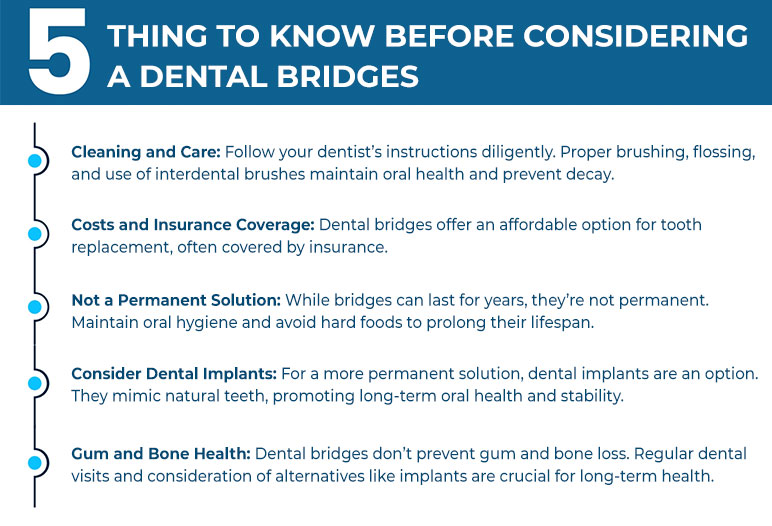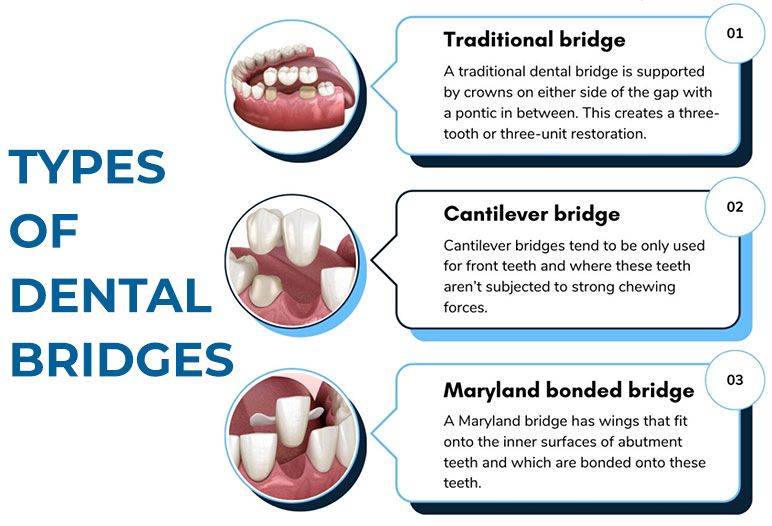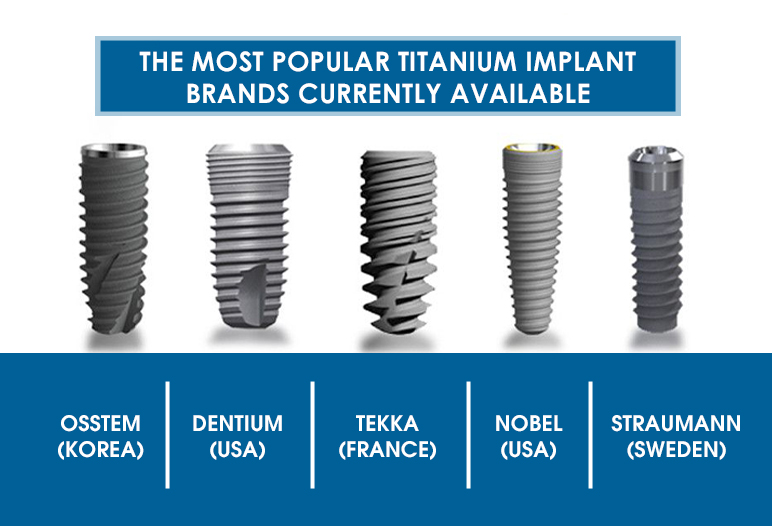How much are bridge implants? This is a common question for individuals facing tooth loss who are exploring their options for restoration. Dental bridges serve as an effective solution to replace missing teeth, helping to restore both function and aesthetics to your smile. However, the costs associated with these implants can vary widely depending on several factors, including materials used, complexity of the procedure, location, and more. In this comprehensive guide, we’ll delve into everything you need to know about bridge implants, from their importance to the various costs involved, and how they compare to other alternatives.
The importance of dental bridges
When it comes to oral health, maintaining a complete set of teeth is crucial. Missing teeth can lead to a plethora of complications that affect not just your dental health but also your overall well-being. Dental bridges play a vital role in preventing these complications by effectively filling the gaps created by lost teeth.
Difficulty chewing and digesting food
One of the most immediate effects of losing teeth is the challenge of chewing food properly. Missing teeth significantly impair your ability to bite down on various foods, leading to potential digestive issues. When you struggle to chew effectively, you might resort to softer foods lacking essential nutrients. This can cause nutritional deficiencies over time, which can have far-reaching impacts on your overall health.
Furthermore, the act of chewing is pivotal for stimulating saliva production, which aids digestion. Without the presence of teeth, the mouth may become dry, and digestion could be hindered even further. A dental bridge provides a solution by restoring the functionality of missing teeth, allowing you to enjoy a diverse diet and maintain proper nutrition.
Speech impairment
Teeth play an integral role in speech articulation. Missing teeth can lead to a speech impediment, making it difficult to pronounce certain words clearly. Gaps in your smile can result in slurring or lisping, which can be embarrassing and frustrating when trying to communicate.
A dental bridge helps restore normal speech patterns by filling these gaps, allowing for clearer pronunciation and greater confidence in verbal interactions. With a restored smile, individuals often find that their communication becomes more fluid and self-assured.

Shifting teeth
The absence of teeth doesn’t just create aesthetic gaps; it also puts surrounding teeth at risk. When teeth are missing, neighboring teeth can begin to shift out of alignment to fill the void. This misalignment can lead to further dental problems, including uneven bites, jaw pain, and additional tooth loss.
Installing a dental bridge can help prevent shifting by providing stable support for the remaining teeth. By redistributing the forces of chewing and biting across a complete dental arch, bridges protect the integrity of your entire mouth, minimizing future dental complications.
Jawbone deterioration
Another critical aspect of tooth loss is the impact on your jawbone. Healthy tooth roots stimulate the jawbone through regular chewing. When teeth are lost, the stimulation ceases, causing the bone to deteriorate over time. This can lead to facial collapse, making one appear older and impacting self-esteem.
Dental bridges do not provide root stimulation like dental implants do, but they can help preserve the overall structure of the mouth. However, it’s essential to consult with your dentist about the best approach for your specific situation, especially if you are concerned about long-term jawbone health.
Reduced confidence and self-esteem
Perhaps one of the most profound effects of missing teeth is the hit to your confidence and self-esteem. Individuals with noticeable gaps in their smiles often feel self-conscious and may avoid social situations because of their appearance. This can negatively impact personal relationships and professional opportunities.
By restoring your smile with a dental bridge, you can regain the confidence that comes with having a complete set of teeth. A natural-looking smile can enhance your self-image and encourage positive social interactions.
Overview of dental bridges
A dental bridge is a prosthetic device designed to close the gap created by one or more missing teeth. It consists of artificial teeth, known as pontics, supported by crowns placed on the adjacent healthy teeth. The result is a “bridge” that restores both function and beauty to the smile.
Types of dental bridges
There are several types of dental bridges, each suitable for different situations:
- Traditional Bridges: These are the most common type, consisting of pontics held in place by crowns on either side. They are suitable when there are healthy teeth available for support.
- Cantilever Bridges: Used when there are adjacent teeth on only one side of the gap. They extend across the gap without the need for support on both sides.
- Maryland Bridges: Also known as resin-bonded bridges, these utilize metal wings attached to adjacent teeth. They are less invasive compared to traditional bridges.
- Implant-Supported Bridges: These bridges rely on dental implants for support instead of natural teeth, ideal for individuals who have lost multiple teeth and lack sufficient bone for traditional bridges.

How bridges are made
Creating a dental bridge involves several steps. The process typically begins with a consultation where the dentist assesses your dental health and discusses your goals. If dental bridges are deemed appropriate, you’ll undergo the following steps:
- Preparation: The adjacent teeth are prepared by filing them down to accommodate the crowns.
- Impression: An impression of your teeth is taken to custom-make the bridge.
- Temporary Bridge: A temporary bridge may be placed while the permanent one is being fabricated.
- Placement: Once the permanent bridge is ready, it’s secured in place using dental cement.
Maintenance of dental bridges
Maintaining a dental bridge requires diligent oral hygiene practices. Regular brushing, flossing, and routine dental visits are essential for ensuring the longevity and health of your bridge. It’s important to use special cleaning aids designed for bridges to keep the area around the prosthetic clean and free from plaque buildup.
Factors influencing the cost of bridge implants
Understanding the cost of dental bridges is crucial for anyone considering this treatment option. Several factors influence the price, ranging from the materials used to the complexity of the procedure.
Type of materials used
The materials selected for your bridge significantly affect its cost. Common material options include:
- Porcelain-Fused-to-Metal (PFM): Offering a blend of durability and aesthetics, PFM bridges are popular choices. While they provide a natural look, their cost may be higher due to the combination of porcelain and metal.
- All-Ceramic or Zirconia: Known for their excellent aesthetics and biocompatibility, these materials closely resemble natural teeth. Although generally more expensive than PFM bridges, their popularity is growing among patients seeking a natural appearance.
- Gold: While not commonly used today, gold bridges are highly durable and biocompatible. However, their high cost can make them less appealing to those on a budget.

Complexity of the procedure
The complexity of the procedure will also influence the final cost of dental bridges.
- Number of Teeth Being Replaced: The more teeth you need to replace, the more complex the procedure becomes. This complexity translates into higher costs due to additional materials and time required.
- Condition of Adjacent Teeth: If supporting teeth require extensive preparation, such as root canals or crowns, this will add to your overall expenses. Your dentist will assess the health of your existing teeth during the consultation phase.
- Need for Bone Grafting: In cases where bone density is insufficient to support a bridge, bone grafting or sinus lifts may be necessary. These procedures carry additional costs and should be discussed during your consultation.
Geographic location and market differences
Dental costs can differ significantly based on geographic location. Major metropolitan areas typically have higher costs of living, leading to increased dental practice prices. Additionally, local market conditions and the level of competition among dental practices can also influence pricing.
Patients are encouraged to research dental practices in their area and compare costs and services before making a decision.
Breakdown of costs associated with bridge implants
Understanding the breakdown of costs associated with dental bridges can help you plan better financially.
Initial consultation fees
Before beginning any dental treatment, an initial consultation is crucial. During this appointment, the dentist will evaluate your dental needs and discuss potential options. This visit may include X-rays, a clinical evaluation, and a discussion of your treatment goals.
The cost of the initial consultation typically ranges from $50 to $250, depending on the clinic and geographical area. Some practices may offer complimentary consultations or promotional pricing, so it’s worth inquiring.
Procedure and laboratory costs
The bulk of the expense associated with dental bridges arises from the procedure itself. Costs can range from $1,000 to $5,000+ per tooth, influenced by various factors mentioned earlier.
Within this phase, the dentist will prepare the existing teeth, create the bridge, and secure it in place. The laboratory work required for crafting the pontics and crowns is included in this component.
Follow-up visits and maintenance
After the dental bridge has been placed, follow-up visits are necessary to ensure proper healing and check for complications. Each follow-up appointment can cost between $50 and $150, making these visits an essential part of your ongoing care.
Additionally, adjustments or repairs may be required, contributing further to the total cost of maintaining your bridge over time. Keeping up with good oral hygiene and regular dental visits can prolong the life of your bridge and minimize unexpected costs.
Insurance coverage and payment options
Navigating insurance coverage and payment options is key when considering dental bridges. Understanding what your insurance policy covers can significantly ease the financial burden of dental work.
Understanding dental insurance policies
Dental insurance policies vary widely when it comes to covering dental bridges. Some plans may cover a portion of the cost, while others may impose limits on the materials used or the type of bridge allowed.
It’s essential to carefully review your policy and contact your insurer to clarify coverage specifics related to dental bridges. Knowing your benefits ahead of time can help manage expectations and aid in budgeting for treatment.
Flexible financing solutions
Many dental practices recognize the cost of dental treatments can be daunting, which is why they often offer flexible financing solutions. These options may allow you to break down the cost into easily manageable monthly payments, making dental treatment more accessible.
During your consultation, inquire about available financing plans, interest rates, and payment terms to determine which solution works best for your situation.
Alternative payment plans
If insurance benefits and financing options don’t fully cover the costs, consider alternative payment plans offered by some dental practices. These plans can facilitate manageable monthly installments, reducing the upfront financial burden.
Discussing payment options with your dental provider can uncover helpful solutions that streamline the payment process.
Comparing alternatives to bridge implants
While dental bridges present an excellent option for tooth replacement, it’s essential to consider other alternatives that may suit your needs and budget.
Dentures vs. Bridge Implants
Dentures are removable prosthetic devices designed to replace missing teeth. Generally, dentures are considered a more affordable option compared to dental bridges. Their cost typically ranges from $500 to $3,000 per arch, depending on the materials used and complexity.
However, dentures come with several downsides. They are less stable than bridges and may cause discomfort for some individuals. Furthermore, frequent adjustments and relines can contribute to ongoing costs.
Dental implants as an option
Dental implants represent a more advanced tooth replacement option, involving the surgical placement of titanium posts into the jawbone. This method mimics the function of natural tooth roots and offers unparalleled stability.
Despite their advantages, dental implants are often more expensive than bridges, typically ranging from $3,000 to $6,000 per implant. Additional costs for procedures such as bone grafting can escalate the price further.
Cost comparison between different options
| Option | Cost Range | Advantages | Disadvantages |
| Dental Bridge | $1,000 – $5,000+ per tooth | Durable, aesthetically pleasing, natural appearance | Requires healthy adjacent teeth, can be more expensive than dentures |
| Dentures | $500 – $3,000 per arch | More affordable, removable, easy to clean | Not as stable as bridges, can be uncomfortable, requires frequent relines |
| Dental Implants | $3,000 – $6,000 per implant | Most durable, stable, natural feeling, preserves jawbone | More expensive, complex surgery, requires good oral health |
The table above highlights the cost comparisons between dental bridges, dentures, and dental implants. By understanding these differences, you can make an informed decision based on your specific needs and financial situation.
Conclusion
In conclusion, understanding how much bridge implants cost is an essential step in restoring your smile after tooth loss. The factors influencing costs range from the materials used to the complexity of the procedure and even geographic location. While dental bridges present an effective and aesthetically pleasing solution, alternatives like dentures and dental implants may also warrant consideration depending on your circumstances.
Whether you’re contemplating a dental bridge or weighing other options, consulting with a dental professional is crucial. They’ll guide you through the process, help you understand potential costs, and assist you in making an informed choice that aligns with your dental needs and budget. Remember that investing in your oral health can lead to improved quality of life, enhanced confidence, and a brighter smile for years to come.

 Google Reviews
Google Reviews Call
Call
SAIGON IMPLANT CENTER
Best dentist in Vietnam
Saigon Implant Center - Dental Clinic utilizes the latest technology for specialized treatment in the field of Single implant, full jaw implants, All on 4 implants, All on 6 implants, Zygoma implant....
SAIGON IMPLANT CENTER
Best dentist in Vietnam
Saigon Implant Center - Dental Clinic utilizes the latest technology for specialized treatment in the field of Single implant, full jaw implants, All on 4 implants, All on 6 implants, Zygoma implant....